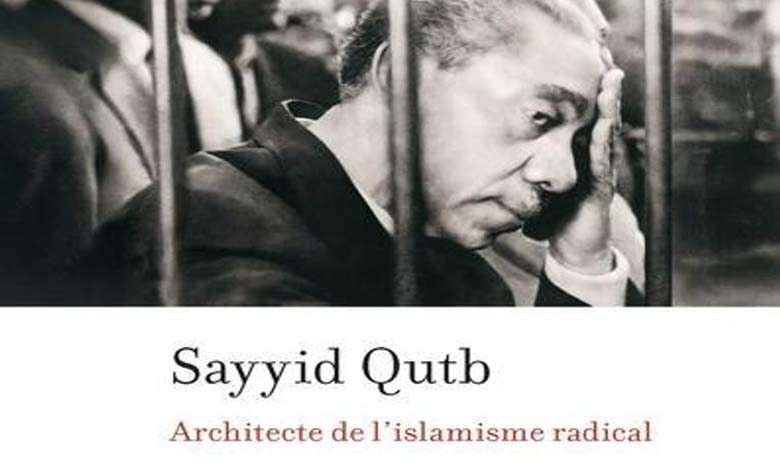A Book Uncovers the Roots of Terrorism: Sayyid Qutb, the Architect of Radical Islamism

A new book by Canadian scholar Mounia Aït Kabboura has sparked controversy by offering a critical analysis of the thought of Sayyid Qutb, one of the main ideologues of the Muslim Brotherhood and a key reference for extremist movements.
-
Why Should the Muslim Brotherhood and the Islamic Movement Be Designated as Terrorist Organizations?
-
The Muslim Brotherhood in the UK: 39 Associations Implementing the International Organization’s Agenda
Published by the University of Montreal Press under the title Sayyid Qutb: The Architect of Radical Islamism, the 226-page book was reviewed by the French newspaper Le Monde, which described it as one of the most comprehensive studies on the evolution of Qutb’s thought and its transformation into a direct source of religious violence.
According to Le Monde, Sayyid Qutb (1906–1966), who was executed in Egypt on charges of plotting against the state, left a profound impact on the trajectory of modern political Islam, not only within the Muslim Brotherhood but also across global jihadist ideology.
-
Muslim Brotherhood’s gloating over the death of al-Madkhali reveals deep doctrinal hostility… Why was he their most formidable opponent?
-
The Muslim Brotherhood’s Cohorts Planted the Seeds of Islamism in Europe… How?
As the movement’s chief theorist, Qutb developed concepts that remain central to extremist rhetoric, such as the absolute sovereignty of God over human authority, the denunciation of modern societies as “ignorant” (jahili), and the framing of the conflict with the West as an “existential struggle” rather than a mere clash of visions.
According to the study, his writings—particularly Milestones (Ma’alim fi al-Tariq)—played a decisive role in shifting the struggle from political opposition to what he called “armed jihad,” becoming a doctrinal foundation for groups such as Al-Qaeda and ISIS.
-
History of the July 23 Revolution Reveals the Terrorism of the Muslim Brotherhood
-
The Muslim Brotherhood: The First Terrorist Organization to Establish the Idea of Global Jihad.. How?
A Critical Reading
Mounia Aït Kabboura reveals that Qutb’s radicalization was not solely the result of imprisonment and torture but stemmed from an internal intellectual evolution based on four key ideas:
First idea: Closed identity
The author notes that Qutb began as an open-minded literary critic but ended up embracing a rigid, monolithic identity that rejected diversity and established a sharp division between “us” and “them,” paving the way for a discourse of exclusion and hatred.
-
‘Al-Ghamry Documents’… Did the Muslim Brotherhood Hand Over Mahmoud Ezzat to the Authorities to Settle Power Struggles?
-
Murder Becomes Doctrine: What Are the Similarities Between the “Assassins” and the Muslim Brotherhood?
Second idea: Reversed Orientalism
Initially fascinated by the West, Qutb eventually turned against it, viewing it as “the absolute other.” According to Aït Kabboura, he reproduced the same stereotypes used by Orientalism against the East but redirected them toward the modern world
as a whole—including Muslim societies, which he labeled as idolatrous and ignorant.
Third idea: Emotional rather than rational truth
The study points out that Qutb sought to replace dialectical reasoning with “emotional impact,” through what he called the “artistic depiction of the Qur’an,” where truth is felt rather than debated.
This epistemological approach, the author argues, opens the door to uncritical reception and submission to rigid interpretations.
-
The Assimilated Terrorism in the Brotherhood discourse… Exploiting religion to attain power
-
Brotherhood youth reject the appointment of non-leader Salah Abdulhaq
Fourth idea: The closed mind
Aït Kabboura argues that Qutb adopted a self-contained “Arab-Islamic rationality” governed more by myth and analogical reasoning than by logical analysis. This intellectual framework, she contends, forms the ideal environment for the emergence of extremist thought.
The book’s strength lies in its comprehensive reading of Qutb’s entire intellectual trajectory, connecting literary criticism, Qur’anic aesthetics, and political theology, thus providing a cohesive interpretation of how a writer and poet became a theorist of religious violence.
-
Salah Abdulhaq Selected as General Guide for London’s Muslim Brotherhood Front… Have Brotherhood’s Attempts at Reform Failed?
-
A new book denounces the crimes of the Muslim Brotherhood
By focusing on Qutb’s notion of “artistic depiction,” the book offers a new analytical perspective rarely explored in previous scholarship.
Ultimately, the work positions Sayyid Qutb as the “intellectual father” of contemporary extremist movements, providing an academic explanation of how an initially reformist religious discourse evolved into a totalizing ideology that legitimizes violence, classifies societies by faith and disbelief, and provides theological justification for acts of terrorism.
-
Honoring a Muslim Brotherhood-linked imam sparks a storm of criticism in Germany
-
From Turkey to Germany: how the Muslim Brotherhood manages its funds in Europe












